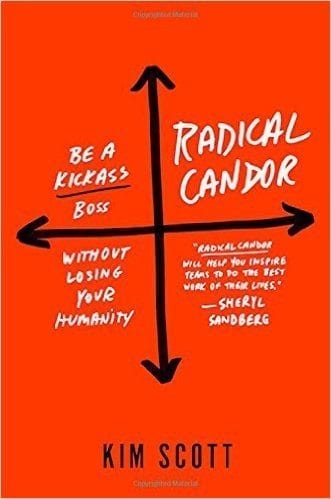Radical Candor: Be a Kick-Ass Boss Without Losing Your Humanity
It’s unnatural. It’s stark. It’s brutal at times. And it’s exactly what your employees need to hear.
Candor. Stark, honest, up-front assessment and feedback. Perhaps we have shifted the emphasis on tolerance too far in the workplace.
In the forthcoming book, Radical Candor: Be a Kick-Ass Boss Without Losing Your Humanity, author Kim Scott urges supervisors and managers to deploy a feedback and communication method she feels is too often missing in today’s business environment. Scott, a former executive at Google and Apple, describes her approach to effective management.
Scott theorizes about what causes managers to not deliver the facts employees need to hear. She suggests that it is grounded in the childhood mantra that if you can’t say something nice, don’t say anything at all. When combined with a fear of litigation and younger generations raised in the “everyone gets a trophy” mindset, candor is being replaced by political correctness.
Scott encourages managers to find the sweet spot between being hypercritical and being overly empathetic. She believes managers should provide guidance to employees (who are desperately seeking it) through a blend of praise and criticism, suggesting that this approach is the best way to help employees grow, produce better results, and achieve both personal and organizational goals.
Three Keys to Delivering Radical Candor
Scott defines three keys for implementing radical candor:
- Make it personal
- Get it done
- Understand why it matters
Collectively, these create the basis for a balanced delivery of Radical Candor – a combination of praise and critique. Scott says that managers who are able to convey both personal concern and direct challenges are working in the Radical Candor zone.
Criticism, she argues, needs to be delivered, but with a spirit of kindness and a sincere desire to help the employee improve. While it may be difficult, it is, in fact, this balance that generates the best results.
By contrast, managers who neither care about or challenge their employees represent what she calls Manipulative Insincerity, a delivery of non-specific, insincere praise or criticism that is vague and mean-spirited.
Those who challenge, but don’t care, practice what she calls Obnoxious Aggression.
Those who care, but don’t challenge, are giving Ruinous Empathy in which criticism is sugarcoated and never leads to change.
How to Practice Radical Candor
Scott examines both criticism and praise to help managers get to Radical Candor.
When criticizing, Scott posits that “Most people would rather hear it straight. … (I)t becomes much easier to ‘just say it!'”
Similarly, praising others just to make them feel better comes across as insincere. “When you see that others perceive your praise as hollow, you’ll naturally start praising in a way that is more specific and sincere, and therefore helpful.”
As Sheryl Sandberg says, “reading Radical Candor will help you build, lead, and inspire teams to do the best work of their lives. Kim Scott’s insights–based on her experience, keen observational intelligence and analysis–will help you be a better leader and create a more effective organization.”

